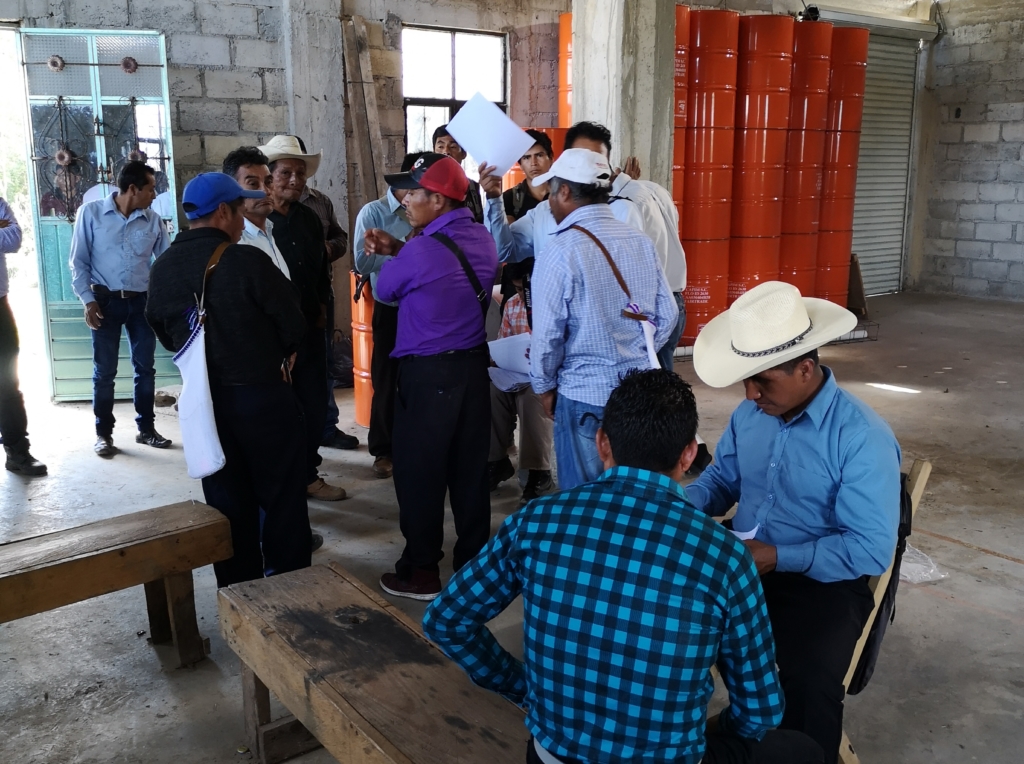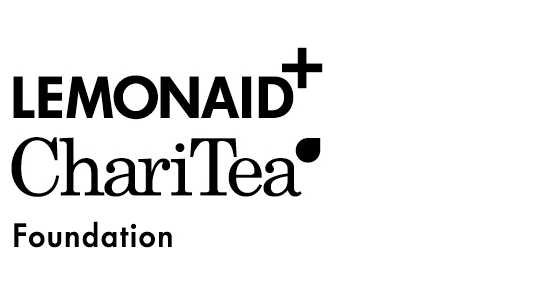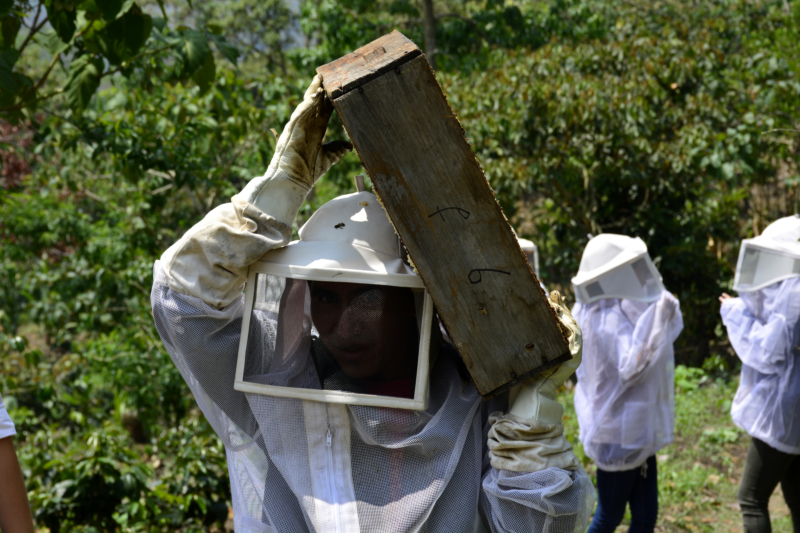Since the beginning of 2019 the Lemonaid & ChariTea Foundation has been working together with the Mexican organization “El Buen Socio“. The joint project in the southern state of Chiapas aims to support five cooperatives in the cultivation of honey. Honey is a profitable source of income in the region and provides the livelihood for many people in one of the poorest states of Mexico. In order for honey cultivation to become and remain profitable for small beekeepers, it is important for them to acquire business management knowledge and, for example, to know their breakeven and successively improve their value chain. El Buen Socio’s project is not only designed to enable beekeepers to continue their financial education, but also supports them in earning a higher price for their honey.
The organization El Buen Socio, founded by Karla Breceda in 2014, currently consists of four women whose common goal is to build a more inclusive country. Working in the financial sector and with organizations such as the World Bank, the founder realized that access to financial resources is not easy, especially for small entrepreneurs in Mexico. For this reason, El Buen Socio is currently active in more than 8 Mexican states and focuses on working with small producers and cooperatives to provide them with basic financial training and loans according to the needs of each of their members. Consequently with the aim that everyone can develop their productive and sustainable potential. In this context, El Buen Socio has worked with entrepreneurs and cooperatives that deal with various areas of agriculture and from the civil society.
Entrepreneurship and microfinance in Mexico
Small entrepreneurs Mexico have experienced a strong boom in recent years due to a lack of employment and working conditions. In rural communities, there are a large number of entrepreneurs and projects that have a large impact on the environment, social change and the creation of productive jobs, but are not taken into account by the conventional financial institutions existing in the country.
The percentage of adults having access to formal loans is very low, which has triggered the growth of microfinance institutions. However, their structure, with fixed and limited credit amounts, fixed and weekly payments and the sometimes high repayment rates (often twice as high as the loans granted) promotes over-indebtedness. Additionally, the credits granted are low, which is not a significant investment for the entrepreneurs inside the sector. This problematic particularly affects states such as Chiapas, which has a population of 5 million people, 70% of whom live in poverty.
Innovation in the honey production chain
Beekeeping in Chiapas is one of the most important activities and takes fourth place in honey production in Mexico. Just over 3 years ago, El Buen Socio began to join forces with the first indigenous beekeeping cooperative in Chiapas. Through this work, El Buen Socio became aware of many of the problems with which the beekeepers have to struggle. As a result, they began to work together to develop the technical, financial and organizational capacities of the cooperative. One of the biggest problems the cooperative members have to struggle with is their lack of knowledge reagrding their finances and how to operate in order to be profitable. Most of them have no income or expenditure plan and do not take their working time into account. Therefore, they do not know what their production costs are or where their break-even is, leading to low product prices and economic losses.

In order to tackle this problem, El Buen Socio has developed a financial training method and a textbook that brings the subject of business management closer to the producers, so that they can better understand whether their activity is profitable or not and how much profit is being made. Through the training, they are trained to operate profitably and to make sustainable investments.
Beekeeping cooperatives fight against climate change
The current project seeking to improve the supply chain does not only focus on financial aspects but also supports cooperatives in the transition from conventional to organic and sustainable honey production. For this purpose, they have developed a logbook for beekeepers in which the activities of the producers are listed in order to quickly identify problem areas. The complex project thus contributes through its holistic approach to the benefit of more than 200 beekeepers in Chiapas, in the municipalities of Chenalhó, Chalchihuitán, Aldama, Ocosingo, Huitiupán, Jaltenango, Tenejapa and Villaflores.
The results of the first cooperative which was integrated into the program showed a significant increase in honey production in the first year. After a while, the honey production gradually decreased. Bee mortality and shorter flowering periods caused by climate change have led to a gradual reduction in production volumes. For that reason, El Buen Socio supports the cooperatives in introducing innovative methods such as gaze change. A practice used in other regions of the country. This activity consists of moving hives from one place to another with different flowering times. This is made possible by year-round blood times at different altitudes in the region, so that the bees have the opportunity to have an additional production time.
Lemonaid & ChariTea e.V. supports the beekeeping cooperatives
The support of the Lemonaid & ChariTea Foundation goes into the implementation of financial training, regular visits to the cooperatives and the workshops on the organic standard and the costs for organic certification in the last two years and the further development of the programme.
The project will support the organizational capacities of five local beekeeping cooperatives to make beekeeping a stable and dignified source of income for beekeepers and their families. In the poorest state of Mexico, such projects can have a major impact. Above all and despite the difficulties in which the state finds itself, Chiapas has a great natural wealth that generates beekeeping as a productive activity that helps small-scale producers fight the poverty in which they live.



